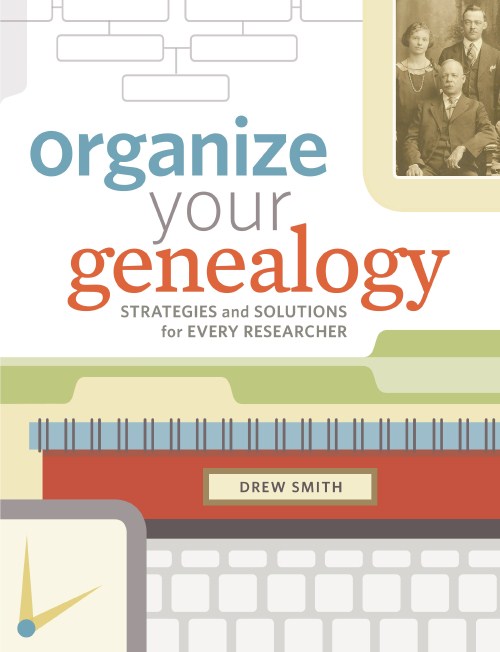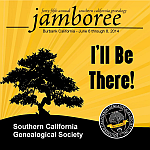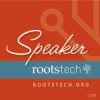“…when we’re disorganized, we lose precious time,” writes expert organizer and tech guru Drew Smith in his new book Organize Your Genealogy (FamilyTree Books, 2016)http://bit.ly/2CXHZLd. It doesn’t matter if you’re looking for a jar of Ancho Chili Powder in the depths of your kitchen cupboard or for your elusive fourth great grandfather in a 19th century census, a system will help you find what you’re seeking.
Confession: my spices are alphabetically arranged and organized by “genre.” Spices on the top shelf, blends and seasonings on the bottom shelf. And woe to the one that misfiles Ancho Chile with Bratwurst Blend, he might be getting some fiery German sausages for dinner.
I like having things organized, although my genealogy work doesn’t always match my spice cupboard. The notion that being organized is as much a state of mind as a method of arranging your files is the overarching theme of Smith’s Organize Your Genealog. The author begins with the reader/genealogist, encouraging and suggesting tips to develop mental wellness, good habits, efficient workspaces, and productivity.
Organize Your Workspace
Because I’m thinking of rearranging my current office and planning a move to new space, I was especially excited by Smith’s chapter on organizing workspaces and workflow. I learned about installing an uninterruptible power supply (UPS) device to protect by electronic equipment, and discovered tips to make my office space easier to use and more efficient.
Organize Your Genealogy Research and Data
Researchers won’t get impatient looking for practical advice as Smith moves on to address the book’s main topic — organizing the search for genealogical answers and managing the data and materials accumulated in the hunt.
Chapters 3 through 8 address the practicalities of developing effective research goals and of organizing notes, files, communication, and research. In Chapters 9 through 11, Smith offers seasoned advice to help plan successful research trips, educational goals, and volunteering with the genealogy community.
Organize Your Tech
Smith also offered step-by-step help with screenshots for those of us who could use some help managing email or handling mailing list protocol. Filters! Yes, filters. Thanks, Drew, I need to remember to let filters do their job.
As a professional librarian, Smith knows how to coax a search engine into giving up its prey, and he is generous with tips and guidance. Organize Your Genealogy is like looking over Drew’s shoulder when he’s on the prowl. His clear and concise writing style and encouraging attitude reflect Drew’s skill as a coach and instructor.
The book’s graphic design is attractive and easy to read. I was given a PDF e-book preview edition and especially like the attractive worksheets and charts illustrating key chapter concepts. Drew’s To-Dos were a helpful summary at the end of each chapter.
Time spent reading Drew Smith’s Organize Your Genealogy is an investment that will by paid back many times over in saved hours, reduced frustration, and successful genealogy research. And, it might even inspire you to alphabetize your spices.
About the Author: Drew Smith is an Assistant Librarian with the USF Tampa Library, and is the 2016 winner of the Filby Award for Genealogical Librarianship, presented by the National Genealogical Society. He is past president of the Florida Genealogical Society of Tampa, and has served on the boards of the Federation of Genealogical Societies, the Association of Professional Genealogists, and the Florida State Genealogical Society. Drew is the author of the book Social Networking for Genealogists, is the co-author of the book Advanced Genealogy Research Techniques, and is the co-host with George G. Morgan of the popular Genealogy Guys Podcast.
Disclosure: I was provided with a no-strings-attached pre-release copy of the book for this review. See my Disclosure Policy for more information. Thank you for supporting The Family Curator website with your affiliate purchase.
Organize Your Genealogy: Strategies and Solutions for Every Researcher, by Drew Smith (FamilyTree Books, 2016), 240 pages. Paperback, ebook, Amazon Kindle. Available from ShopFamilyTree.com and Amazon.com.






